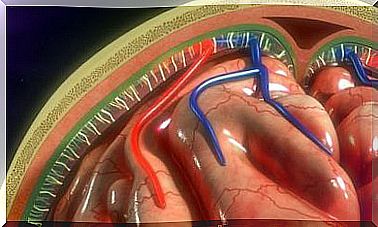Can We Stop The Development Of Alzheimer’s Disease?
In order to prevent the principle of Alzheimer’s disease, it is very important to avoid its occurrence, and for this we must exclude its risk factors from our routine.

Alzheimer’s disease is one of the most alarming pathologies of recent decades, due to the increasing number of diagnoses. Although the “trigger” causes of the process are not precisely known, we do know that the symptoms progress at a remarkable rate.
The disease wreaks havoc on patients and family members, and for this reason many people wonder if it would be possible to stop the degenerative process.
What is Alzheimer’s disease?
Our brain acts as a multifunctional center, thus responsible for controlling the organic functions of our body.
It interprets external stimuli to transmit orders that generate responses in our muscles, bones, organs, but also our glands.
If we are thirsty, if we can walk or memorize a lot of data, it is therefore through the action of our brain. However, this can be affected with age.
Alzheimer’s disease is one of the disorders that most commonly affects neural cells and, therefore, the brain.
It is a degenerative neuronal disease that causes many symptoms of dementia to appear. It is generally associated with aging, although it can also affect young people with risk factors.
- In medical terminology, the term “dementia” refers to clinical pictures that involve symptoms such as loss of cognitive ability and memory.
As we age, our neurons deteriorate, and because they cannot regenerate, they die. This involves the reduction of many brain functions and, as a result, older adults are more vulnerable to dementia.
Symptoms associated with Alzheimer’s disease
In the context of Alzheimer’s disease, dementia thus appears as the main symptom of severe degeneration of nerve and brain cells.
On the other hand, with the advancement of this degenerative process, many patients register a profound change in their daily behavior and in their personality. Also, in more severe cases, a serious personality disorder may appear.
The International Alzheimer’s Association has developed a list called “The 10 Signs,” in which it warns about the most common signs in patients.
We list them here so you can recognize them:
- Memory changes that hinder daily activities
- Difficulty solving simple problems
- Difficulty performing usual tasks
- Loss of the notion of space and time
- Difficulty interpreting images
- Problems with written or spoken language
- Storing items in unusual places and difficulty finding them
- Difficulty making decisions and loss of judgment
- Loss of initiative or motivation
- Changes in mood, behavior or personality
Causes associated with Alzheimer’s disease

There is still no medical consensus on the “trigger” causes of the degenerative process of Alzheimer’s disease. In addition to aging, the following risk factors are indicated:
- Smoking
- Alcoholism
- Consumption of toxic chemicals, such as narcotics
- Unbalanced diet
- Sedentary lifestyle
- Overweight and obesity
- Poor sleep (poor quality or low number of hours of sleep)
- Eating disorders, such as anorexia nervosa
- Cardiovascular problems, such as high blood pressure
- Brain damage caused by accidents, trauma or illness
Can we slow the development of Alzheimer’s disease?

When we talk about slowing the development of Alzheimer’s disease, it actually comes down to preventing the progression of symptoms.
However, we must understand that even more important than slowing down a degenerative process, it is necessary to prevent its emergence. Mainly taking into account the rapid progression of brain damage in cases of dementia.
Preventing Alzheimer’s disease means excluding risk factors from your routine. Therefore, what we offer below is a proposal to change the habits to take care of our mind and body every day.
- Eat a balanced diet, avoiding excess food and empty calories.
- Exercise regularly (at least 30 minutes a day).
- Maintain good weight management to prevent cardiovascular disease and overweight.
- Eat foods rich in vitamin C and antioxidants : citrus fruits, red fruits, green leafy vegetables, dried fruits, fish with a high content of omega 3 and 9, etc.
- Reduce daily stress levels, with physical activity, meditation, yoga, certain hobbies, etc.
- Know how to respect moments of rest and recreation: overloaded work is counterproductive for your health and your cognitive ability.
- Get eight hours of sleep a day and maintain a good quality of sleep.
- Maintain healthy relationships and grow in frequent positive environments.
- Maintain good self-esteem, avoid negative thoughts, and don’t be ashamed to seek psychoanalytic treatment if necessary.
- Drink alcohol moderately, do not smoke and do not consume toxic substances.
Menopausal women can consult their doctor about hormone replacement with estrogen.
It is believed that reducing the natural production of this hormone may promote the emergence of Alzheimer’s disease.









